Earth
Sign up for our newsletter
We summarize the week's scientific breakthroughs every Thursday.
-
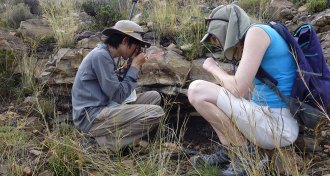 Paleontology
PaleontologyLand life spared in Permian extinction, geologists argue
New rock layer dating in South Africa’s Karoo Basin suggests that extinctions of land species didn’t coincide with the Permian extinction around 252 million years ago.
-
 Climate
ClimateKangaroo farts may not be so eco-friendly after all
Kangaroos fart methane, but not much thanks to the metabolism of gut microbes
-
 Science & Society
Science & SocietyQuantum spookiness, magnetic mysteries and more feedback
Letters and comments from readers on quantum spookiness, Earth's magnetic field, and more.
-
 Earth
EarthNew recipe for diamonds: Just add acid
Rises in acidity during interactions between rocks and water in Earth’s interior can spark diamond formation, simulations show.
-
 Earth
EarthNew recipe for diamonds: Just add acid
Simulating the chemistry, pressures and temperatures in Earth’s interior, scientists have discovered a new way diamonds can form.
-
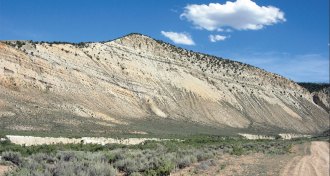 Climate
ClimateEocene temperature spike caused by half as much CO2 as once thought
Revised experiments demonstrate that hot temperatures during the Eocene resulted from lower carbon dioxide concentrations than previously thought.
-
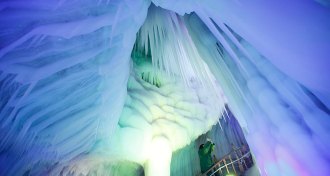 Climate
ClimateHow to melt an ice cave
Frigid winter air keeps gives ice caves their perpetual chill, researchers find, warning that airtight seals on some ice caves could cause the frigid formations to melt within decades.
-
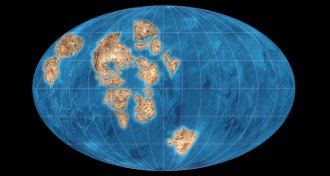 Earth
EarthNew fascination with Earth’s ‘Boring Billion’
The Mesoproterozoic era, known as the boring billion, had very low oxygen, but it set the stage for the evolution of animals.
-
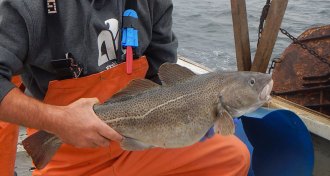 Oceans
OceansRising temperatures complicate efforts to manage cod fishery
Higher water temperatures in the Gulf of Maine could play a role in Atlantic cod crashes.
-
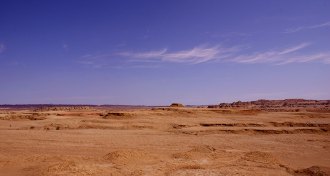 Earth
EarthParched parts of Earth expanding
More drylands, largely impacting developing nations, are forecasted for near future.
-
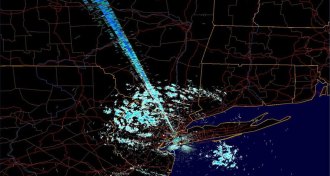 Climate
ClimateWi-Fi threatens weather forecasts
Interference from wireless technology threatens the usefulness of weather radar, meteorologists warn.
-
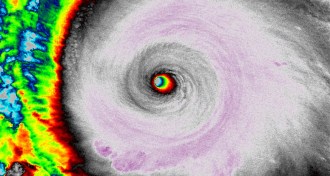 Climate
ClimateHurricane Patricia’s howling winds smash records
Hurricane Patricia’s winds are now the fastest ever recorded in a tropical cyclone, making it the strongest hurricane on record in the Western Hemisphere.